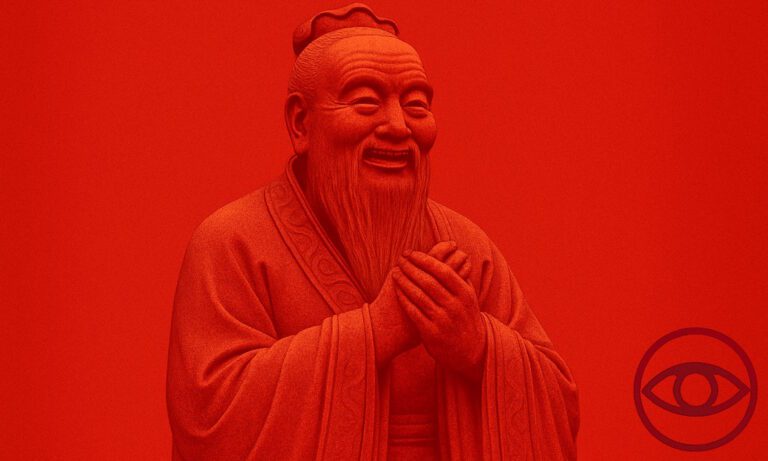
A year after facing a widespread consumer boycott in China, the Swedish clothing multinational H&M returned to the Tmall e-commerce platform. However, the boycott seems to have left its marks that go well beyond the specific case and pose questions for the future involvement of foreign enterprises in the Chinese market.
In 2021, the surge of consumer boycotts of foreign companies that expressed concerns about alleged forced labor in Xinjiang resulted in vast media coverage and gained the attention of both Chinese and western audiences. One of the most talked about boycotts was the one of the Swedish retailer H&M.
What appears to have sparked the boycott was a statement shared on Weibo in March 2021 by the Chinese Communist Youth League. The post that accused H&M of spreading lies about Xinjiang cotton came only two days after the European Union and the United States, among others, imposed sanctions on Chinese officials connected to human rights abuses in Xinjiang. While this suggests that the boycott of H&M was part of China’s response to sanctions, the motive for singling out H&M remains somewhat ambiguous.
Origins of the Boycott
H&M was not the only company that came under fire for expressing concern for the alleged use of forced labor in Xinjiang, yet it was the only one whose products were pulled from China’s top digital marketplaces, and which received a direct complaint from a state-affiliated organization.
To understand why the clothing giant was subjected to far harsher criticism than other companies, four key factors must be considered: the company’s affiliation with the Better Cotton Initiative (BCI), remarks made about Xinjiang, bilateral relations between China and the company’s home country, and its reputation in China.
The affiliation with BCI appears to have been significant for two reasons. First, the Communist Youth League’s post about H&M included a screenshot of a May 2020 BCI statement stating that all licensing for Xinjiang exports had been discontinued. This implies that the statement was intended to criticize not only H&M but also the BCI. Second, all of the textile companies that were later boycotted were and continue to be members of the BCI. Since the BCI had taken a firm stance on Xinjiang cotton, H&M and other BCI members were required to abide by the guidance if they wanted to keep their membership, which they all did.
However, only half of the textile companies set to be boycotted issued statements on the Xinjiang issue: Adidas, Nike, H&M, and Zara’s parent company, Inditex. H&M and Nike were the most outspoken of the four. Adidas issued a statement declaring that it would no longer source cotton from Xinjiang but did not elaborate. Inditex put out a statement criticizing the reports of forced labor, but when boycotts began, the statement was retracted.
Another factor to consider is the bilateral relationship between China and H&M’s home nation, Sweden. Up until the spring of 2021, when the boycotts first emerged, Sweden had been experiencing deteriorating relations with China. When Gui Minhai, a Swedish citizen detained in China since 2015, received a human rights award, former Chinese ambassador Gui Congyou stated that China would impose “restrictions” on economic and trade relations with Sweden. Furthermore, Stockholm’s decision to exclude Huawei and ZTE from its 5G telecommunications network enraged China’s foreign ministry, which warned that it could harm the economic cooperation between the two countries.
However, Sweden’s ailing relationship with China is not unique. The rivalry between China and the United States remains far more intense. Despite this, Nike, which also took a significant hit, did not face the same level of pressure as H&M. What sets these companies apart is their reputation in the Chinese market. Nike has had a presence in China for 40 years and has a strong brand heritage. H&M, on the other hand, had experienced little growth prior to the boycott and was having difficulty pleasing Chinese consumers and local governments. This, along with the fact that there are numerous alternatives to the products offered by H&M, may have resulted in it being a lower-cost target than, say, Nike.
Moreover, H&M appears to have been an appropriate target because the boycott could ultimately achieve several goals with a single action. First, it seems to have created an incentive for consumers and netizens to mobilize and boycott other companies affiliated with the BCI that had criticized China’s human rights record. Second, the boycott of H&M shows the variety of methods China can use to exert pressure on foreign countries perceived to be opposing China’s political positions or painting as a security threat.
Silent Return?
Prior to the boycott, China had been H&M’s fourth largest market. Six months later, China dropped out of the company’s top ten list. The clothing giant closed about 140 physical stores across China, including its flagship location in Shanghai. Harsh pandemic restrictions in some of China’s most populous cities make distinguishing the impact of the pandemic from the effects of the boycott difficult. Nonetheless, H&M’s exclusion from China’s top e-commerce platforms as a result of the boycott is likely to have had a greater impact on sales than on the companies who retained an online presence during the pandemic.
However, H&M’s online store was reopened on Tmall in late August. While this could boost H&M’s sales in China, there are signs that Chinese netizens and consumers have yet to forgive the Swedish company. Even though the online store has 14.33 million fans, most users appear to leave negative comments rather than purchasing products. Moreover, H&M’s return has trended on Weibo and Doyin with netizens expressing their desire to continue the boycott and filing complaints with Tmall for allowing H&M to return.
At the same time as closing many stores, the company has introduced its more upscale labels, Arket and & Other Stories to the Chinese market. Whereas higher quality and prices may win over some Chinese customers, the success of these brands will most likely be determined by whether or not consumers discover the links to H&M.
The Future of Chinese Consumer Boycotts
While consumer boycotts of foreign companies have become increasingly common in China, few boycotts have emerged since the H&M affairs, and none have been as widespread. While it is too early to tell whether this decline will continue, there are primarily two factors to keep an eye on: Chinese online nationalism and foreign companies’ involvement in topics deemed sensitive by China.
Control over social media platforms, where the majority of boycott mobilization occurs, has been tightened even further ahead of the 20th National Party Congress. Loud, destabilizing voices have been silenced, even the most nationalistic ones. Because the rise in consumer boycotts, particularly of Western companies, appears to be linked to a general rise in online nationalism, the silencing of outspoken nationalists would reduce the likelihood of boycotts of foreign companies spreading on Chinese social media.
Another explanation for the ebbing down of consumer boycotts this year might be that foreign corporations are becoming more hesitant to engage on topics deemed sensitive by Chinese consumers and governments. The H&M case exemplifies how foreign companies will increasingly be forced to navigate a consumer climate influenced by intensified geopolitical challenges where Chinese and Western perspectives may differ. This may ultimately force businesses to choose which markets to prioritize.
Just recently, Tesla’s CEO, Elon Musk, proposed that Taiwan should be designated as a special administrative zone. Many Chinese officials, including China’s ambassador to Washington, praised the recommendation. While this is not Musk’s first provocative statement, one wonders if he would have been as friendly to Beijing if China were not Tesla’s second largest market and its most productive factory was not in Shanghai. While it is unlikely that other companies will follow suit and make obvious prioritizations towards Beijing, statements like Musk’s risk establishing a new agenda for foreign companies in which remaining silent will not be enough to prevent boycotts.
Written by
Hillevi Parup
Hillevi Pårup is an Analyst at the Swedish National China Centre. She holds a Master’s Degree in China and Globalisation from King’s College London and previously also studied Chinese at Stockholm University and Fudan University.


